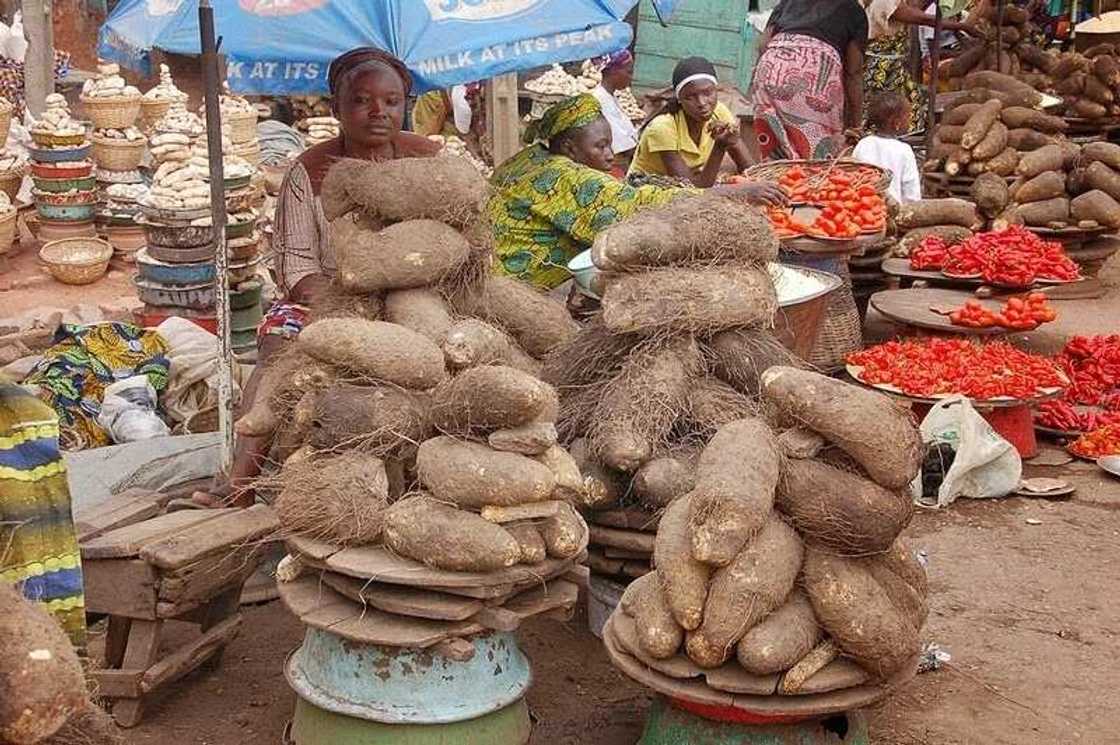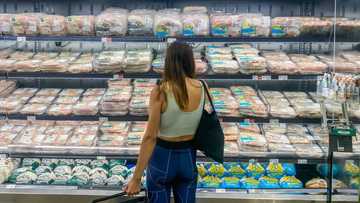Flood Crisis in Some States to Force Nigeria's Inflation Rate Higher
- Food inflation in Nigeria will further increase as a result of the heavy floods in some states
- Nigeria's inflation rate increased by 20.8% in September from 20.52% in August, the highest rate since 2005
- "Going by what we are experiencing in Benue, Kogi and others, food prices will further increase as a result of the heavy floods that have destroyed farmlands," an expert has said
PAY ATTENTION: Сheck out news that is picked exactly for YOU ➡️ find the “Recommended for you” block on the home page and enjoy!
The current flooding experienced in some parts of Nigeria will further heighten Nigeria's inflation rate in the coming months of the year.
This is as stated by Olumide Adesina, a Certified Investment Trader and Financial Analyst in an exclusive interview with Legit.ng.
Adesina's comment is coming on the backdrop of the recent announcement by the National Bureau of Statistics (NBS) of Nigeria's inflation rate reached a 17-year high in September as a result of rising food prices and supply chain disruptions.

Source: Depositphotos
PAY ATTENTION: Subscribe to Digital Talk newsletter to receive must-know business stories and succeed BIG!
According to the Consumer Price Index (CPI) report made public by the NBS, Nigeria's inflation rate increased by 20.8% in September from 20.52% in August, the highest rate since 2005. The report, also revealed the index increased by 1.36% month over month as opposed to the 1.77% growth saw the month prior. The annualized rate of food inflation increased from the 23.12% figure from the previous month to 23.34%.
According to the NBS, increases in the price of bread and cereals, food items, potatoes, yams, and other tubers, oil, and fat are to blame for the rise in the food index.
The core inflation rate, which includes the costs of erratic agricultural products, increased from 17.2% in August 2022 to 17.60% in September 2022.
What the expert is saying
Adesina said that even though the Russia-Ukrain war might be one of the factors that has led to a food inflation in Nigeria, the current flooding in some parts of the country will further exacerbate the condition of things.
He said,
The war in Ukraine's "external shocks" is one cause of Nigeria's rising inflation. For instance, the country's importation quantities and payment of subsidies have increased, impacting the price of retail fuel which is crucial to businesses in the Nigerian market due to the rising cost of oil and gas.
A major factor responsible for food inflation is the rise in the price of food items. Going by what we are experiencing in Benue, Kogi and others which are core food producers, there's no doubt that food prices will further increase as a result of the floods that has destroyed farm produces.
In order to provide a lifeline for the Nigerian populace as inflation pressures show no signs of moderating with floods causing more havoc on Nigeria's fragile food supply, FG must set aside intervention funds that will actually be directed into agriculture. In addition, import tariffs on imported food goods must be relaxed immediately.
More people and businesses in Nigeria, a nation of more than 200 million people, are worried about hardship as a result of the consumer inflation rate that is at a 17-year high and is more than double the Central Bank of Nigeria's 9% target.
Despite having the largest economy in Africa and one of the top oil producers, many people in this West African nation have experienced economic hardship due to corruption, instability, and poor governance.
Effect of recent flooding
Legit.ng reported earlier that floods have taken over major states in Nigeria, displacing homeowners and businesses in some parts of the country. The flood is caused by heavy rainfall and the release of excess water from a Camerounian dam.
Communities in Benue, Adamawa, Taraba, Anambra, Rivers, Bayelsa, Nasarawa, Kogi and other states have been devastated by the flood that has destroyed many homes, businesses, farmlands and lives.
According to the Ministry of Humanitarian Affairs, over 1.4 million persons have been displaced, and no less than 500 persons have been reported dead.
"Similarly, 45,249 houses were totally damaged... while 70,566 hectares of farmlands were completely destroyed," added the statement from the ministry's Deputy Director of Information, Rhoda Ishaku Iliya.
States with the highest food inflation
Legit.ng earlier reported that the NBS revealed that in September 2022, food inflation on a year-on-year basis was highest in Kwara (33.09%), Kogi (28.46%), and Ebonyi (27.41%).
It also noted that Kaduna (18.84%), Jigawa (19.20%) and Sokoto (19.44%) recorded the slowest rise in year-on-year food inflation. For month-on-month changes, food inflation was highest in Enugu (2.61%), Ogun (2.50%), and Oyo (2.43%), while Sokoto (-0.88%).
Ondo (0.38%) and Niger (0.62%) recorded the slowest rise on month-on-month inflation rate in the month of September.
Source: Legit.ng






